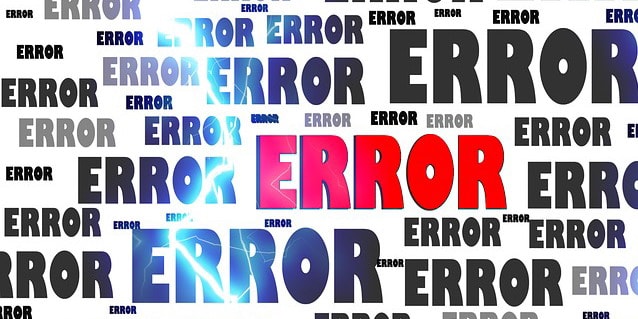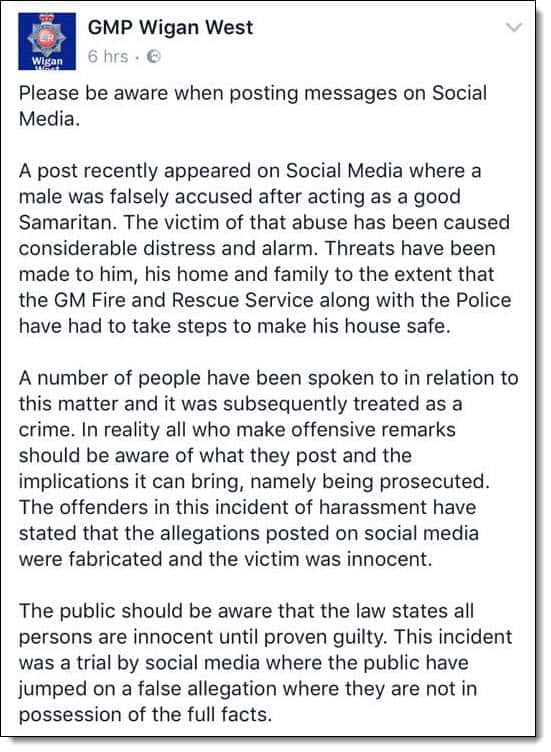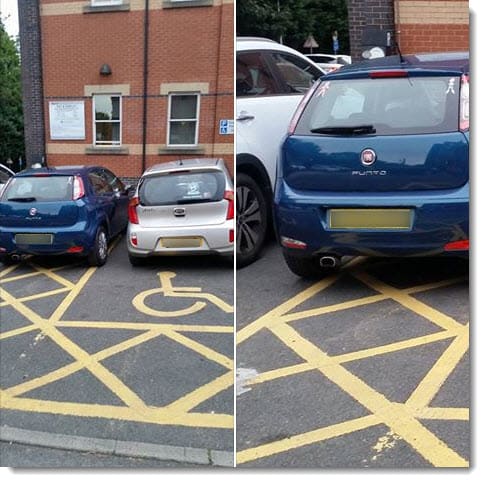FOUND GUILTY BY FACEBOOK
Take a look at this picture…
What’s your judgement?
Have you decided whether the driver of the blue car is guilty or innocent?
“Guilty of what, David? What are you on about?” I hear you say!
Let me explain…
The picture was posted on Facebook a couple of weeks ago.
It’s in a hospital car park.
I saw exactly the same picture in two separate community groups that I follow.
But how different the reactions were…

GUILTY
In group one, along with the picture was a question:
Why park like this? They didn’t even have a disabled badge.
So the comments began…
The first commenter said:
Wonder if they got a ticket slapped on their windscreen.
What followed next was a whole load of abuse aimed at the driver for being inconsiderate, having parked in a disabled area without a badge and on the yellow cross-hatched area.
What a xxxxx the driver turned out to be!
Now I’m no psychologist, but, to me, that’s a clear case of social proof.
What do you mean by that, David?
This…
- When people are uncertain, they are more likely to use others’ actions to decide how they themselves should act.
- If we’re unsure or uncertain, we’re likely to look to and accept the actions of others as correct.
You see…
The first commenter set the tone, which everyone else followed.
And the driver was found guilty without trial on Facebook.
Why can you be so certain about that, David?
Because I saw the comments in the other Facebook community group for exactly the same picture.
INNOCENT

In the other Facebook group, the early commenters suggested that perhaps there was a reason why the car had been parked in such a way in the hospital car park.
Maybe the driver was carrying a sick child into Casualty.
Or hurrying to see a parent in the valuable few minutes before they passed away.

What followed was very interesting.
Nearly everyone defended the driver…
And they questioned the motives of the person who had posted the picture.
Yes, this definitely was following the principles of social proof too.
They were identical pictures. Only one thing was different…
How the comments began, everyone else followed.
DON’T BE THE JUDGE AND JURY
Is it me?
Or has anyone else noticed that the amount of “Guilty by Facebook” is increasing?
Last week, I saw a picture of a man sitting in a bus station.
Apparently, he was a vile man.
His accusers were some young girls who had left a night club.
They’d told some passersby that the man has made sexual suggestions to them.
So the passersby took a photograph of the man and posted it on Facebook, saying how vile he was.
Then they drove the girls home.
The Facebook comments began – in a negative way.
So, following the social proof principle, they continued negatively.
No one dared to defend the man.
But from the story and the comments, it became clear that no one had informed the Police. Nor had they spoken to the man to ask his side of the story.
But the post went viral. And that’s how I came across it – shared by a Facebook friend.
I only hope they’re right, and it wasn’t merely a scheme by some girls to get a free taxi ride home.
But what if it was a made-up story?
What if the man was completely innocent?
His face is now all over the internet.
Found guilty on Facebook.
What if the man’s daughter or granddaughter discovered the Facebook post?
And then showed the man his photograph, together with all those horrible and vindictive comments?
What if the shock of seeing it caused him to suffer a heart attack?

So if you’re ever tempted to be the judge or jury on Facebook…
Instead… let’s allow the professionals to do that.
And when – and only when – someone has been found guilty by a Court of Law…
Expose them to shame… if that’s your thing.
Or if grace is your thing…
Pray for them.
But remember…
Trial by Facebook could happen to you.
All it takes is someone to jump to a conclusion.
So let’s choose not be part of it.

IS FACEBOOK DANGEROUS?
No. Not when used properly.
But just in case you think I’m anti-Facebook, hop over to this other blog post I wrote only a few weeks ago.
It’s called Why I Waste Time On Facebook.
A bit tongue-in-cheek, it’s all about what a valuable asset Facebook can be… in the right hands.
You can find that by clicking right here.
CONCLUSION
How can we change things?
We can lead the way with our posts.
And with our comments!
Let’s be positive. Let’s believe the best in a person.
Now that we know how Social Proof works, let’s get in there quickly and set the trend – for good.
And let’s do our part towards making Facebook a place where people can feel safe.
RESOURCE
I learned about Social Proof from an excellent book: Influence, The Psychology of Persuasion, by Robert Cialdini (available here on Amazon).
POST SCRIPT – POLICE REACTION
Since this post was published, the Police issued an announcement about the story of the man at the bus stop.
The story did indeed turn out to be completely fictitious and was subsequently treated as a crime.
The clear message: be very careful what you post, comment on, and believe on Social Media.







Interesting post David. I see this quite a lot with marketers trying to advertise on Facebook. The first few comments usually dictate the rest. If someone asks questions, more will follow. If someone claims it’s spam right off the bat, it’s usually difficult to come from.
Thanks Martin.
Out of interest, there’s now an attempt by someone on Facebook to spread a post in order to clear the man at the bus stop. It appears to have been a made-up story after all, the original post has been taken down, and the new vindicating post is being shared across Facebook.
Yes, Social Proof is a powerful thing.
Nice article David, as we spoke this evening it is my concern that the ‘sheep’ element does dictate morality at unfortunately the expense of the old adage of there always being 2 sides to any discussion.
Great point, Andy. That’s my concern too. Social Media seems to feed us either stuff they want us to believe, or stuff which confirms our own biases – which leaves no room for informed discussion.